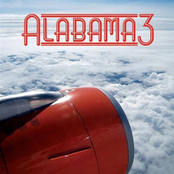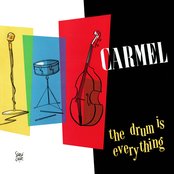Camino primitivo part 6: Grandas de Salime to A Fonsagrada
First of all we had to get back to where we had left off which meant a four-hour bus ride deep into Asturias. As we got near to Grandas, a group we assumed were pilgrims got on the bus… blatant cheating, but it had been snowing on the high pass and they claimed incipient hypothermia. What that meant though, was Julio became a little paranoid that there wouldn’t be any spare places in the albergue (the pilgrim’s refuge) so as soon as the bus stopped he was away, grabbing his rucksack and marching smartly towards the town hall. As it happened the three pilgrims were looking for a hotel, they wanted the extra heat and the chance to warm up. We found the albergue almost empty, a couple of guys from Galicia and a Frenchman, and a cyclist and his suspiciously clean bike. As ever, a place to eat was next on the list. We tried one bar in town where they said it was too early (8pm) and we’d have to wait. So we went to another where the guy said he’d ask his wife and gave us pinchos de chosco (a pressed ham that they do here which is rather good) while we waited. She brought us out a tortilla which was brilliant yellow with waxy soft potatoes, that we ate while the bar filled up ready for Barcelona v Arsenal on the telly. The only other entertainment in town seemed to be the ubiquitous protests about the head of the ethnographic museum being fired. We headed back to the albergue to sleep in the almost suffocating heat (the heating was turned up to ‘dry everything’).
Next morning we walked away from Grandas and out of Asturias. There were a couple of villages left to pass before we made it to Galicia, but the buildings were already showing signs of Galician influence. There’s a lot of slate around there, and roofs are normally made of it, but with interlocking tops so that the stones can’t blow off in the wind. The weather forecast was not the most optimal for walking, predicting showers and snow down to 900m (our route over Holly Pass, el puerto del acebo was at 11oo or so. It hadn’t started raining at that point so we enjoyed the verdant rolling hills as we headed up the steep-ish climb.
We stopped for a rest in Penafonte, where there’s a quite impressive slate and granite church. Julio is keen on getting his pilgrim credentials (the piece of paper you need to demonstrate your journey and to let you use the albergues) stamped everywhere he can. At the moment there is a preponderance of bar stamps. This may be because of the local priest shortage. Although there are a lot of churches and chapels, it’s hard to find a priest when you want one. The
churches in these remote parts have services every few weeks if they’re lucky. As we left the shelter of the church porch it started raining.
The high point of the day found us walking under windmills which loomed suddenly from the mist. For the top kilometre we were in snow and sleet. Then we passed a small slate with the words Asturias | Galicia and that was that. We’d walked out of Asturias. The rest was downhill to the coast.
We walked on, descending though extensive pine plantations until we reached a hamlet. There was a bar but it was shut, looked like it never really opened. A few houses later on we asked someone and they said there was a restaurant just a bit further on. The restaurant was called the catro ventos (Galician for the four winds – quatro vientos). They say you eat well in Galicia, they’re not kidding. We had caldo gallego to start (Galician soup, which is basically stock with potatoes, beans and turnip leaves) and then I had a steak which filled a big plate (rather more than I expected seeing as the price was not much more that €6).
As we got nearer to A Fonsagrada (a note on Galician names, A means La in Castillian Spanish, O is El, basically the Galicians couldn’t be bothered with the first consonants in the so A Fonsagrada means The sacred spring) Julio asked an old guy where the albergue was. He said there wasn’t one. The albergue is actually in a little village further on called Padrón. Sigh. We arrived, a little damp, and signed in. This albergue is run by the Protección civíl and is a bit more than just one room. We had a room to ourselves and a lift back up to Fonsagrada to have a look at the town and to eat octopus. Many people have told us that the best octopus in Galicia can be found here (a long way from the coast). So even though we had eaten a reasonable lunch we tucked into a plate of pulpo which was at least as good as any I’ve had elsewhere in Spain.
Tags: camino primitivo, galicia, mountains, walking
Both comments and pings are currently closed.




El pulpo del Caldeira (ese bar) ES el mejor del mundo, doy fe de ello ;)